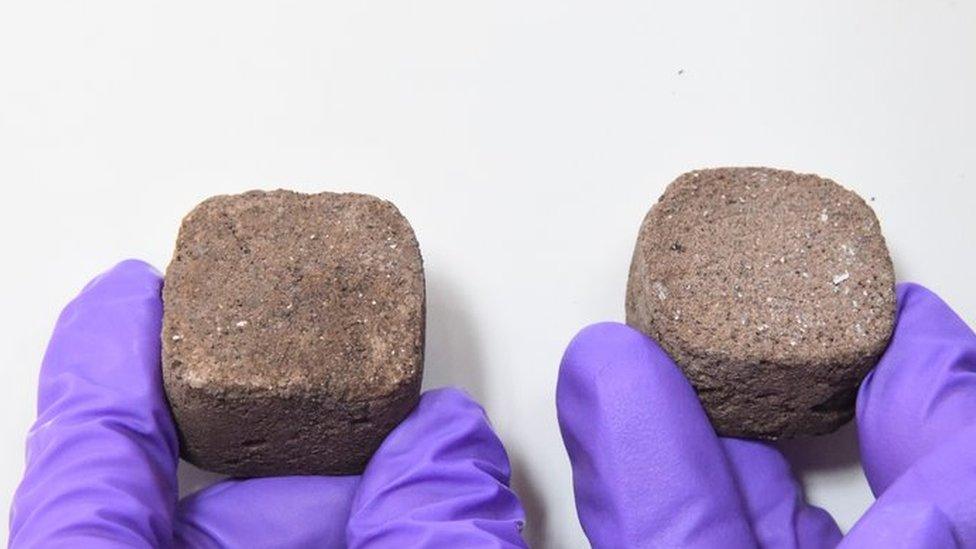Mars: 'Space-bricks' could be used to build homes on Red Planet
- Published
- comments

The team created 'space-bricks' using a material similar to Martian soil
Whether people can one day live on Mars is a question that's intrigued scientists for years... Now, a group of researchers from the Indian Institute of Science (IISc) may have helped move humanity one step closer to making this a reality!
They've come up with an idea for 'space-bricks' which they believe could one day be used to build human settlements on the Red Planet.
However, these special bricks aren't like anything you've seen here on Earth. Instead, they'll be made from soil taken directly from Mars - and bacteria!
How does a 'space-brick' work?
Could we one day build homes on Mars?
So how exactly would this work? Well, the researchers have tested their theory out with a material with is pretty similar to actual Martian soil.
Get ready for a bit of chemistry... the scientists combined this 'Martian' soil with a bacteria called Sporosarcina pasteurii, and a chemical substance called urea.
The bacteria changes the urea into crystals of calcium carbonate which act as cement and hold the soil particles together.
"The bacteria seep deep into the pore spaces, using their own proteins to bind the particles together, decreasing porosity and leading to stronger bricks," says Aloke Kumar who is an associate professor in the Department of Mechanical Engineering at IISc.
The final material can also be moulded into different shapes and even hollow structures. Through their testing, the researchers believe it could be strong enough to build with.
Why is it so tough to get to Mars?
However, more research is needed to figure out if the bricks will be able to do their job once they're actually on Mars.
The scientists will look into how Mars' atmosphere, which is very different from Earth's, and the planet's low gravity would affect the strength of the bricks.
The team have put together a chamber that reproduces the atmospheric conditions found on Mars, and this will help them with further testing.
"I'm so excited that many researchers across the world are thinking about colonising other planets," said professor Aloke Kumar.
"It may not happen quickly, but people are actively working on it."
Would you like to live on Mars one day? Let us know in the comments.
- Published24 March 2021
- Published23 February 2022
- Published6 March 2021
